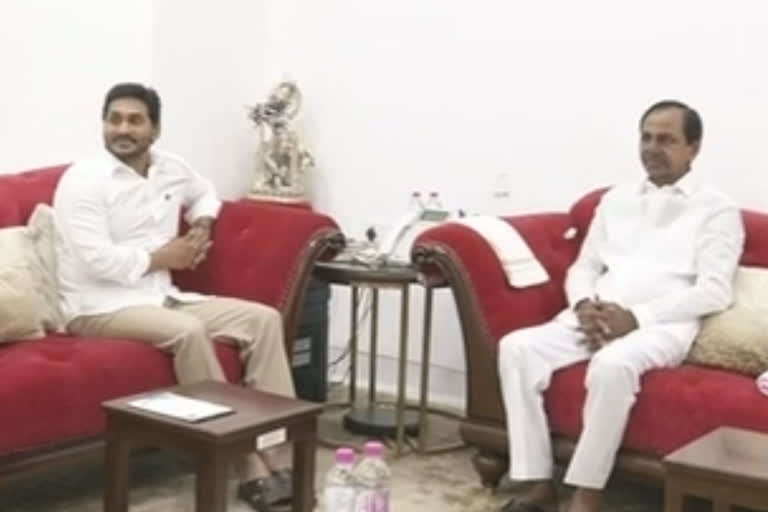Hyderabad: Chief Ministers of Andhra Pradesh and Telangana met here on Monday to discuss various issues including the latest political developments at the national level in the wake of the nation-wide protests over Citizenship (Amendment) Act.
After landing here from Vijayawada, Andhra Pradesh Chief Minister Y.S. Jagan Mohan Reddy drove to Pragati Bhavan, the official residence of his Telangana counterpart K. Chandrashekhar Rao.
Rao accorded a warm welcome to Reddy and hosted a lunch for him. After the lunch, they discussed various issues.
While the agenda of their meeting was not officially announced, the two leaders understood to be discussing the political developments at the Centre in the wake of ongoing protests against CAA, National Population Register (NPR) and National Register of Citizens (NRC).
The two Chief Ministers are likely to discuss CAA and related issues to take a stand in view of nation-wide protests. Rao's Telangana Rashtra Samithi (TRS) had voted against the Bill in Parliament while YSR Congress Party (YSRCP) led by Jagan Mohan Reddy had supported it.
They are also likely to disuss a joint strategy over NPR in view of the demands from various sections, especially Muslims to halt the work on NPR as they believe it to be the first step for NRC. The work on NPR is scheduled from April 1.
Telangana Chief Minister is under pressure from its ally All India Majlis-e-Ittehadul Muslimeen (AIMIM) and other Muslim groups to stay NPR as done by Kerala and West Bengal. Rao has come under criticism for his silence over the NRC and NPR.
Jagan Mohan Reddy, who was criticised for backing Citizenship Bill in Parliament, last month made it clear that he will not support NRC or any other move by the Centre which discriminates against the minorities.
This is the fourth meeting between Rao and Reddy since the later assumed office in May last year. The earlier meetings were focused on issues arising out of bifurcation of undivided Andhra Pradesh in 2014 and sharing of river waters.
Read:| Lucknow, Noida to have commissionerate system of policing



